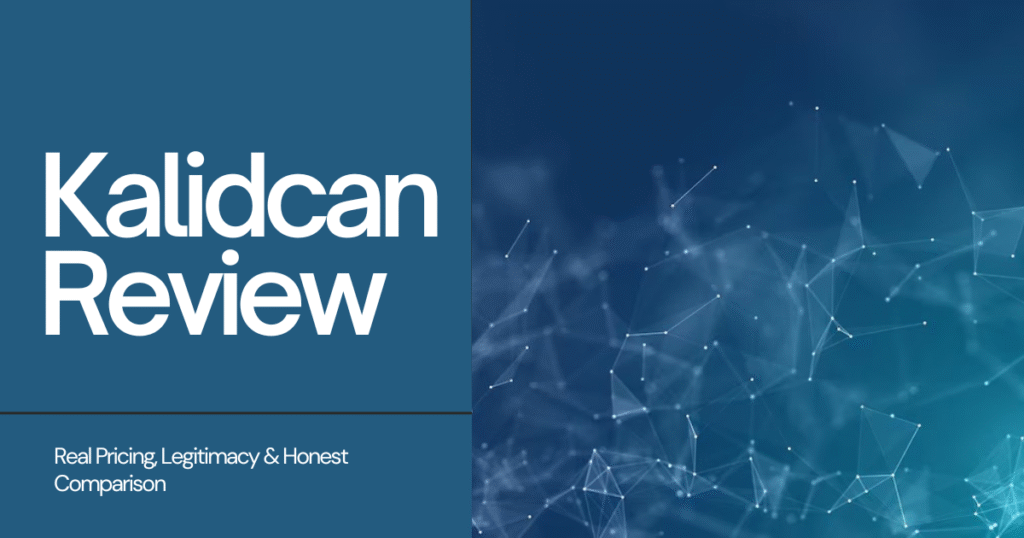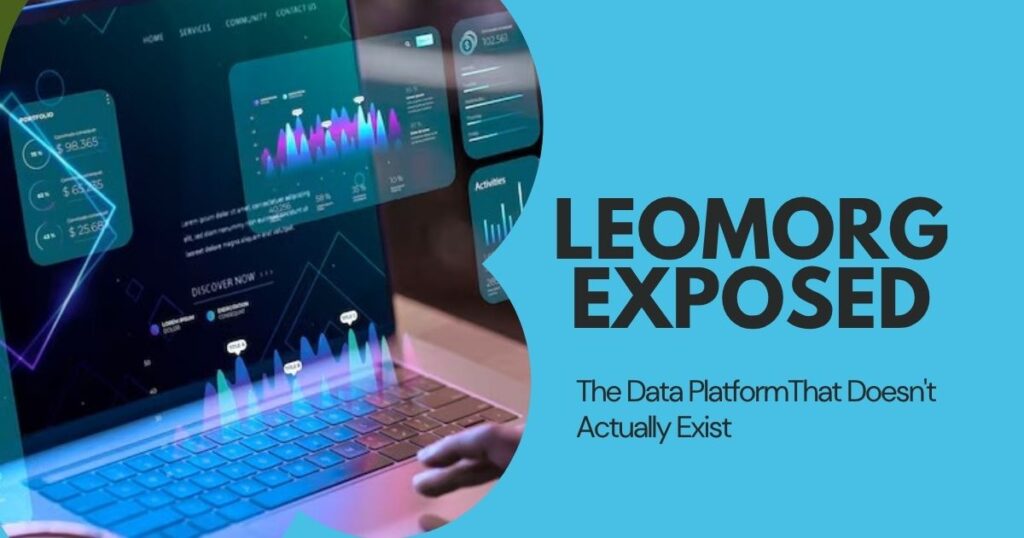Kronosshort.com is a website that combines basic educational content with URL shortening services. However, the platform primarily operates as a link-selling business that offers guest post placements and backlinks for $20-$50 per post. While not an outright scam, it engages in questionable SEO practices that can harm both users and website owners who associate with it.
You’ve probably stumbled across Kronosshort.com while searching for a URL shortener or clicked on a shortened link from social media. Maybe you’re wondering if it’s safe, legitimate, or worth your time. Here’s what you actually need to know about this platform before you click that next link or create your own.
Kronosshort.com presents itself as a digital literacy website with URL shortening capabilities, but there’s more beneath the surface. This guide walks you through what the service really does, its hidden risks, and smarter alternatives you should consider instead.
Understanding Kronosshort.com and Its True Purpose
When you first visit Kronosshort.com, you’ll see what looks like a helpful resource. The site features short articles about study tips, digital literacy, and general internet advice. There’s also a link-shortening tool that promises to simplify long URLs.
But here’s the catch. The educational content serves as window dressing for the site’s real business model: selling backlinks and guest post opportunities to boost other websites’ search engine rankings. This practice falls into a gray area that search engines like Google actively penalize.
The platform lacks transparency about its ownership. You won’t find author names on articles or clear information about who runs the operation. The contact details are limited to an email address and a vague physical address. This anonymity is a common red flag among websites that prioritize profit over user value.
The Link-Selling Business Model
Kronosshort.com generates revenue by allowing third parties to purchase space for guest posts and backlinks. These paid articles typically offer little value to readers and exist solely to manipulate search rankings. When websites use low-quality backlinks from such sources, they risk penalties from search engines rather than gaining the SEO boost they hoped for.
This strategy isn’t unique to Kronosshort.com. It’s part of a growing network of link-selling websites that exploit SEO loopholes. The problem is that these practices violate search engine guidelines against “link schemes” designed to artificially inflate rankings.
How Kronosshort.com Actually Works
The URL shortening feature operates like most link shorteners. You paste a long URL into the designated field, and the service generates a shortened version you can share. Some users report that these shortened links include monetization layers, meaning you might encounter ads or redirects before reaching your intended destination.
Here’s what happens when you use the service:
For Link Creators: You shorten URLs and potentially earn small amounts through ad impressions when people click your links. The platform may track analytics like click counts and geographic data about your audience.
For Link Clickers: You click a shortened link and might face one or more redirect pages with advertisements before landing on the final destination. This delay can be frustrating and introduces security concerns.
The shortened URLs themselves don’t reveal where they lead until you click them. This obscurity creates opportunities for malicious actors to disguise harmful websites behind innocent-looking short links.
The Domain Name Trick
You might notice people write “kronosshort . com” with a space between the name and extension. This isn’t a typing error but a deliberate tactic called domain obfuscation. The space makes the URL look less like a clickable link, helping it bypass spam filters and security checks in emails and forums.
When someone removes that space, they end up on the actual website. This technique allows questionable links to slip through automated security systems that would otherwise flag them as suspicious.
Real Security Risks You Should Know About
URL shorteners in general carry inherent security vulnerabilities, and Kronosshort.com is no exception. Recent cybersecurity research shows that shortened URLs can hide serious threats behind their convenient facade.
1. Obscured Destinations
The primary danger is that you can’t see where a link leads before clicking it. A shortened URL like “kronosshort.com/abc123” gives zero indication whether you’re heading to a trusted website, a phishing page, or a malware download site.
Cybercriminals exploit this feature regularly. They create shortened links that appear harmless in emails or social media posts but redirect victims to fake login pages designed to steal credentials, or worse, initiate automatic malware downloads.
2. Phishing and Malware Distribution
Phishing attacks using shortened URLs have become increasingly sophisticated. Attackers can create links that mimic legitimate services, and once you click, you’re directed to convincing fake websites that harvest your personal information, passwords, or financial details.
The malware risk is equally concerning. A single click on a malicious shortened link can download ransomware, spyware, or trojans onto your device without your knowledge. These programs can monitor your activities, steal data, or hold your files hostage.
3. Privacy and Tracking Concerns
URL shortening services collect extensive data about anyone who clicks their links. This includes your IP address, geographic location, device type, browser information, and browsing behavior. Kronosshort.com, like similar platforms, monetizes this data or shares it with third parties.
You’re not just dealing with the original link creator’s tracking pixels anymore. By using a shortened URL, you’re introducing another intermediary that harvests and potentially sells information about your online activities.
Trust Signals That Raise Red Flags
Several independent analysis tools paint a concerning picture of Kronosshort.com’s credibility:
| Metric | Score/Status | What It Means |
|---|---|---|
| Domain Authority | 10-20 out of 100 | Very low trustworthiness based on backlink quality |
| Spam Score | 20-40% | Indicates engagement in questionable practices |
| Traffic Data | Low | Limited organic reach suggests artificial presence |
| Trust Score | 76 out of 100 | Moderate rating with noted concerns |
| Registration | Recently created | New domain with limited user review history |
The low Domain Authority suggests that reputable websites don’t link to Kronosshort.com, which is telling. Legitimate, valuable resources naturally attract quality backlinks over time. The elevated spam score reinforces concerns about the site’s practices.
The platform’s recent registration date means few users have had time to properly evaluate it or leave detailed reviews. This makes it difficult to establish a track record of reliability or user satisfaction.
Better Alternatives to Kronosshort.com
If you need a URL shortener, plenty of established, trustworthy options exist that prioritize security and user privacy. Here are your best choices:
Bitly: The household name in link shortening offers robust analytics, custom domains, and enterprise-level security. Free plan available with limitations; paid plans start at $8 per month.
TinyURL: One of the oldest services (launched in 2002) provides simple, no-frills shortening without requiring an account. Links never expire, and you can customize URLs. Free tier available.
Rebrandly: Specializes in branded links using custom domain names. Perfect for businesses wanting professional-looking shortened URLs. Free plan includes 500 branded links; paid plans start at $24 monthly.
Short.io: White-label solution with detailed analytics, password protection, and link management features. Handles over 100 million redirects daily with 99.9% uptime guarantee.
These services implement security measures like spam detection algorithms, malware scanning, and blacklisting of known dangerous websites. They also offer transparent privacy policies and responsive customer support.
How to Protect Yourself From Risky Short Links
Whether you encounter a Kronosshort.com link or any other shortened URL, follow these protection strategies:
- Before Clicking: Hover your mouse over the link (desktop) or long-press (mobile) to preview the actual destination in your browser’s status bar. If you can’t determine where it leads, don’t click.
- Use URL Expansion Services: Websites like Unshorten.it allow you to paste a shortened URL and reveal the full destination before visiting. This gives you crucial information about safety.
- Deploy Security Tools: Install browser extensions that offer real-time phishing protection and malicious site warnings. Keep your antivirus software updated to catch threats that slip through.
- Trust Your Instincts: If a link arrives unexpectedly, seems out of character from the sender, or offers something too good to be true, treat it with suspicion. Verify with the sender through a different communication channel before clicking.
- Scan Before Visiting: Use services like VirusTotal to analyze suspicious URLs. Upload the link and the tool will scan it against multiple security databases to identify potential threats.
What This Means for Website Owners
If you’re considering purchasing backlinks or guest posts from Kronosshort.com to improve your SEO, think twice. Search engines have become incredibly sophisticated at detecting link schemes and manipulative practices.
Google’s algorithms actively penalize websites that participate in these activities. Rather than boosting your rankings, associations with low-quality link-selling sites can:
- Trigger manual penalties that tank your search visibility
- Damage your domain authority and trustworthiness signals
- Lead to de-indexing in severe cases
- Require extensive cleanup efforts and disavow file submissions
The short-term SEO gain isn’t worth the long-term damage to your website’s reputation and performance. Focus instead on creating valuable content that naturally attracts quality backlinks from reputable sources in your industry.
The Bottom Line on Kronosshort.com
Kronosshort.com isn’t a straightforward scam, but it operates in ways that can harm users and website owners alike. The platform prioritizes profit through link-selling over providing genuine value through its educational content or URL shortening services.
The security risks inherent in URL shorteners become more pronounced when combined with a platform that lacks transparency and engages in questionable SEO practices. The domain obfuscation tactics, low trust scores, and focus on monetization rather than user experience create a perfect storm of red flags.
You have better, safer options available. Established URL shorteners offer the same core functionality with stronger security measures, transparent operations, and genuine concern for user safety. When you need to share links on social media or track click analytics, choose services with proven track records and clear privacy policies.
Stay vigilant about shortened URLs regardless of their source. The convenience they offer comes with inherent risks that require caution and awareness to navigate safely.
FAQs
What makes Kronosshort.com different from legitimate URL shorteners like Bitly?
Legitimate services prioritize user security, maintain transparency about their operations, and implement robust protections against spam and malware. Kronosshort.com primarily functions as a link-selling business that monetizes its domain for SEO manipulation rather than focusing on providing a quality shortening service. The platform lacks clear ownership information and has low trust scores from multiple analysis tools.
Can clicking a Kronosshort.com link harm my device?
While the platform itself may not host malicious content, any shortened URL carries risks because you can’t see the destination before clicking. Malicious actors can use any shortening service, including Kronosshort.com, to disguise links to phishing sites or malware downloads. The monetization model that includes ad redirects also exposes you to potentially harmful advertisements. Always preview links before clicking and use security tools to scan suspicious URLs.
Why do people write “kronosshort . com” with a space in the middle?
The space is a deliberate trick called domain obfuscation designed to bypass spam filters and security systems. When written with a space, automated tools don’t recognize the text as a URL and won’t flag it as suspicious. Once someone removes the space and enters it as a web address, they end up on the actual site. This tactic is commonly used to share questionable websites through channels that would otherwise block them.



